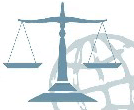Selecting a Good Lawyer
Before You Hire a Lawyer
Free to put your ads
Indonesian Law Expert
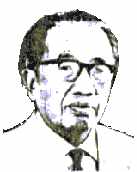 |
| Wirjono Prodjodikoro |
about Wirjono Prodjodikoro
| Sudikno Mertokusumo |
 |
| Nono Anwar Makarim |
 |
| Munir Said Thalib |
 |
| Mochtar Kusumaatmadja |
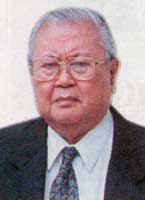 |
| Prof. Dr. H. Koesnadi Hardjasoemantri |
 |
| Prof. Jawahir Thontowi |
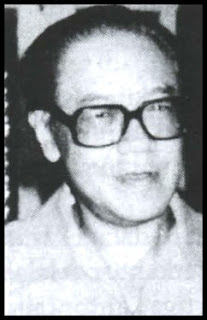 |
| Prof. Dr. Gouw Giok Siong, SH |
 |
| Adnan Buyung Nasution |
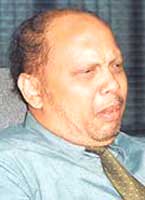 |
| Abdul Hakim Garuda Nusantara |
about Sudikno Mertokusumo
about Nono Anwar Makarim
about Munir Said Thalib
about Mochtar Kusumaatmadja
about Prof. Dr. H. Koesnadi Hardjasoemantri
about Prof. Jawahir Thontowi
about Prof. Dr. Gouw Giok Siong SH
about Adnan Buyung Nasution
about Abdul Hakim Garuda Nusantara
The history of Republic of Indonesia's constitution
The constitution of Republic of Indonesia which is 1945 Constitution was passed as law by state basis PPKI on August 18, 1945. Since the date of December 27, 1949, in Indonesia applies the Constitution RIS, and the date of August 17, 1950 in Indonesia applies Provisional Constitution of 1950. The Presidential Decree of July 5, 1959 re-enact the 1945 Constitution, with confirmed unanimously by the House on July 22, 1959.
In the period 1999-2002, the 1945 has four times the changes (amendments), which alter the composition of the institutions in the state system of the Republic of Indonesia.
Prior to the Amendment, the 1945 Constitution consists of the Preamble, the Body (16 chapters, 37 articles, 65 paragraph (16 verses from 16 chapters which only consists of one paragraph and paragraph 49 of the 21 chapters are composed of two paragraphs or more), Article 4 Transitional Provisions, Supplementary Rules and the second paragraph), and explanation.
Having done four times, the 1945 has 20 chapters, 37 chapters, 194 verses, the Transitional Provisions of article 3, and 2 Additional Rules section.
In Proceedings of the Annual Session of the Assembly of 2002, published the Constitution of the Republic of Indonesia Year 1945 in One Script, Script For perbantuan and Compiling Without There Opinion.
Early History
Business Investigation Agency Preparation of Indonesian Independence (BPUPKI) which was formed on April 29, 1945 was the body that drafted the 1945 Constitution. During the first trial which lasted from May 28 until June 1, 1945, Ir. Sukarno convey the idea of "the State" which was named Pancasila. On June 22, 1945, 38 members of the Committee of Nine BPUPKI form consisting of nine people to design the Jakarta Charter that will be the opening of the 1945 manuscript. After removal of the clause "with the obligation to execute Islamic law for followers-followers" then the script into the script of the Jakarta Charter Preamble of the 1945 Constitution promulgated on August 18, 1945 by the Preparatory Committee for Indonesian Independence (PPKI). Ratification of the 1945 confirmed by the Central Indonesian National Committee (KNIP) which met on August 29, 1945. Indonesia the 1945 draft drawn up during the Second Session of the Preparation of Independence Business Investigation Agency (BPUPKI). The agency name without the word "Indonesia" because it is tied to the land of Java alone. In Sumatra there BPUPKI to Sumatra. The period of the Second Session on July 10 to 17 1945. Dated August 18, 1945, PPKI approve the 1945 Constitution as the Constitution of the Republic of Indonesia.
DISPUTE SETTLEMENT IN INTERNATIONAL TRADE
A. Preliminary
Transactions or trade links many forms, from a form of relationship selling goods, shipping and receiving goods, production of goods and services pursuant to a contract and others. All transactions are loaded with the potential to give birth to a dispute. Generally, trade disputes are often preceded by the settlement of disputes by negotiation. If the way of settlement negotiations fail or not work, then pursued other means such as settlement of disputes through the courts or arbitration. Submission of the dispute, either to court or to arbitration, often based on an agreement between the parties. Usual step taken is to make an agreement or enter into a dispute resolution clause in the contract or agreement that they made, either to court or arbitration body. The legal basis for dispute resolution forums or entity that will handle the dispute is the agreement of the parties. The agreement was put either at the time the contract is signed or after the dispute arises. In addition to the forum of a court or arbitration, the parties may also submit their disputes to alternative dispute resolution, commonly known as ADR (Alternative Dispute Resolution) or APS (Alternative
Dispute Settlement).
B. The Parties in International Trade Dispute
As we all know that the subject of law in international trade law, namely the State, companies or individuals and others. In the following description, the parties to the discussion is limited to the merchant (individual or legal entity) and State. Due to the nature of international trade law is a cross-border, pembahasannyapun restricted only between traders and merchants, then traders and foreign countries.
The dispute is a dispute between two merchants who frequent and most common. Disputes like this happen almost every day. The dispute was settled through a variety of ways. The way the settlement is dependent on the freedom and the agreement of the parties.
Agreements and freedom of the forum court will determine who will resolve their dispute. In addition the agreement and this freedom will determine what law will be applied and implemented by the agency courts adjudicate disputes. Agreements and freedom of the parties is an essential thing. Law respecting an agreement and freedoms. Of course, there is agreement and kebabasan limits. Usually the limits are not violated the Act and public order.
Agrarian Law of Indonesia
In the discussion of the history of the Agrarian Law of Indonesia there are two important phases to consider, namely the phase prior to September 1960, and the phase after that date.In the phase prior to September 1960 the Agrarian Law of Indonesia consists of the parts of Western Civil Law, Customary Law of indigenous people of Indonesia, Law of Inter-Group and the law after the proclamation is the influence of Constitutional Law.From all the above is the most important Indonesian Agrarian Law is premised on the Dutch colonial era is Article 51 IS 1870, also known as the Dutch language Agrarische Wet. As implementation is a revelation than Agrarische Wet Domein (Domein Verklaring) which states that:"All the land that others can not prove, that it is the land eigendomnya domains or owned by the State."So, Domein statement has very important functions as:• a basis for the government in order to provide land to the rights of the West, such as the right eigendom, erfpacht rights, rights opstal and so forth.
STATE AND THE CONSTITUTION
Talking about issues of constitutional law that is discussed two variables, what is it legal? And what is meant by the constitution? Both are closely related to matters of state and therefore to understand the legal sense must be understood first constitution of the state itself.
The state is an organization of a group or several groups of people who jointly inhabit a territory (territory) by admitting certain adanaya a government which administers the discipline and safety of a group or several groups of people in the wilayahnya.Organisasi countries within a region is not only one organization, there are other organizations (religious, political party, civic and other organizations each have a personality that is detached from affairs of state). Less precise when the country is said to be an organized society. Is appropriate when it is said among the organizations above, the state is a major organization within a region because it has government authorities and in many cases able to intervene in other organizations.
There are several key elements or elements that make up the sense of the state, among others:
International Treaties in the Indonesia National Legislation System
International law is a system of rules used to set up an independent and sovereign country.
The international law consists of a set of laws, which largely consists of principles - principles and rules of conduct that binds the state - the state and therefore adhered to in the relationship between the state, which also includes:
Rule - the rule of law on the implementation of funsi institutions - institutions and organizations - International organizations and the relationship between states - states and individuals - individuals.
Regulations - certain legal regulations about the individual - individuals with unity - unity instead of the state, along rights - the rights and obligations of individuals with unity unity is a matter of international cooperation.
Basically berklakunya International Law is based on two principles:
Corporate Administrative System in Indonesia
| New System How it Works 1. The whole process is done online through a network of inter-net that can be accessed by any secretary who followed the No. SABH from all regions of Indonesia. Each notary public who registered in SABH will be given User Id and Pass-word to maintain the security of a-la-ma processing. 2. Notary can perform direct memalui Monito-ring network in-ter-net 24 hours so it can know the progress of the processing that is in the Department Kumdang. 3. If there are errors can be repaired directly and co-mu-tions sector between the Ministry of Kum-dang and Notary to do me through e-mail. 4. With SABH whole process can be performed quickly and save on operating costs charged to the applicant. 5. Payments are made through the Bank appointed so that minimizing the occurrence of illegal fees. | |










